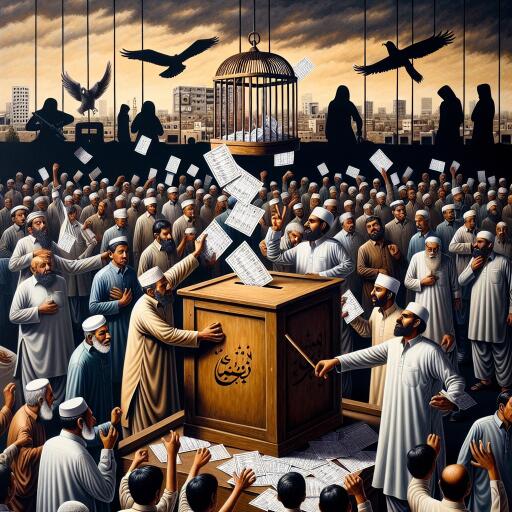Pakistan Holds Parliamentary Elections Amidst Security Challenges and Controversy
In the chilly dawn of February 8, 2024, Pakistanis ventured out to polling stations across the country, determined to elect a new parliament despite the recent surge in militant violence, including twin bombings that resulted in at least 30 fatalities. This election day followed a backdrop of political tension and security concerns, which saw an unprecedented deployment of tens of thousands of security personnel.
The electoral process was marred by incidents of violence, notably in Dera Ismail Khan where an attack on a police van claimed five officers’ lives, and in Kot Azam, where a soldier was killed in gunfire. Meanwhile, in Baluchistan province, grenade attacks at two polling stations added to the day’s tensions, though without causing further injuries. These events exemplified the persistent security threats facing Pakistan, even as the electorate braved these challenges to fulfill their democratic duty.
Amid the tactical challenges, allegations of unfair practices surfaced from the party of imprisoned former Prime Minister Imran Khan, Pakistan Tehreek-e-Insaf, which decried the suspension of mobile phone services as a blatant attempt to manipulate the election outcome. This suspension, according to authorities, was a measure to maintain law and order during the voting process.
Highlighting the competitive nature of this election, major political figures cast their ballots with optimistic views of their party’s success. Nawaz Sharif, seeking a potential fourth term as Prime Minister, expressed hope for a majority win for his party, the Pakistan Muslim League. Conversely, Bilawal Bhutto-Zardari of the Pakistan People’s Party aimed his efforts towards a significant political impact, despite the overarching narrative favoring Sharif in the absence of Khan’s active participation.
The results of this election are poised to shape Pakistan’s future amidst economic adversities and security concerns. With a total of 266 directly contested seats in the National Assembly, the landscape of Pakistani politics might witness a shift depending on whether traditional powerhouses maintain their grip or new alliances form in the face of current challenges.
The international community and local observers alike watch closely as Pakistan navigates through these pivotal moments, hoping for a peaceful outcome that reinforces the country’s democratic foundations.
